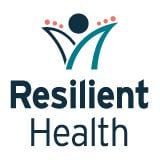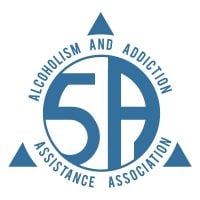Community Health Services
Drug Rehab Center in Phoenix, Arizona
- Substance Abuse
- Opioid Addiction
- Alcoholism
Community Health Services in Phoenix, Arizona provides comprehensive care, utilizing evidence-based treatments and a multi-level approach to patient care, tailored to each individual's unique needs, with the goal of creating sustainable behavior change and providing a comprehensive network of support for individuals struggling with substance abuse, alcohol addiction, and opioid addiction.
About This Arizona Facility
Community Health Services is an alcoholism, substance abuse, and opioid addiction treatment facility based in Phoenix, Arizona. This facility is dedicated to helping individuals who are looking to overcome their addiction and start their journey to sobriety. They offer outpatient and intensive outpatient levels of care, providing flexible treatment options that can fit into individuals' daily lives. With an emphasis on personalized care, Community Health Services aims to provide comprehensive and effective treatment to those suffering from alcoholism, substance abuse, and opioid addiction.
At Community Health Services, individuals seeking help for their addiction can expect to find a wide range of services and treatment methods available. Their team of professionals is committed to addressing the individual needs of each client, providing a tailored approach to recovery. Through individual and group counseling sessions, clients can receive guidance, support, and education on addiction and healthy coping mechanisms. Additionally, Community Health Services may utilize evidence-based practices, such as cognitive-behavioral therapy (CBT), to help individuals modify their negative thought patterns and behaviors related to substance abuse. Furthermore, they may provide medication-assisted treatment for opioid addiction, combining medication with therapy to support individuals in their recovery journey.
Genders
Ages
Modality
Additional
Conditions and Issues Treated
Substance abuse is defined by the continued use of drugs or alcohol despite negative consequences, such as legal or work problems. It can be treated using a variety of services, including therapy and medication.
Substance abuse treatment is beneficial for:
- People who have been using drugs or alcohol for a long time.
- People who have been using drugs or alcohol to cope with stress, anxiety, or depression.
- People who have a mental health disorder in conjunction with substance abuse.
- People who continue to use drugs or alcohol despite the harmful effects they cause on their own life and the lives of others.
- People who have had multiple failed attempts at recovery without medical assistance.
If you believe that addiction treatment is right for you or a loved one, you can contact your primary care physician, or search for addiction treatment centers in your area. Treatment is beneficial to people who are motivated towards recovery, and who understand the benefits of professional care.
Opioid addiction is the result of repeated use, or abuse, of opioid drugs. It is recommended for people who are dependent on opioids, or who have a high risk for dangerous health concerns, to seek professional treatment. Treatment plans usually include behavioral therapy and medication-assisted treatment.
Opioid drugs include: fentanyl, heroin, methadone, oxycodone, and oxymorphone.
Opioid addiction treatment is beneficial for:
- People who have a history of severe withdrawal.
- People with a high risk for dangerous health concerns.
- People having difficulty overcoming opioid addiction on their own.
Levels of Care Offered at Community Health Services
This center offers a variety of custom treatment tailored to individual recovery. Currently available are Intensive Outpatient, Outpatient, with additional therapies available as listed below.
An Intensive Outpatient Program (IOP) is a form of drug treatment that allows individuals to receive the therapy they need while remaining in their homes and community.
An IOP is typically 3-5 days per week, at least 4 hours each day of treatment. Treatment can last for a few months or longer, depending on the situation.
An IOP is a step down from an inpatient treatment center and can be used as a step down from an inpatient stay or as a more intense form of outpatient treatment. IOPs allow for the flexibility to continue working and living at home while still meeting treatment demands.
The outpatient programs in Phoenix, AZ are for those addicted drugs or alcohol. The goal of the outpatient rehabilitation program is to make them stop abusing drugs or alcohol, reduce drug use or addictive behaviors, and become entirely sober. It is generally required to attend the outpatient program for 10-12 hours every week.
Patients can be administered on-the-spot medication to ease withdrawal symptoms such as anxiety, increased heart rate, and even depression. Groups such as Alcoholics Anonymous (AA) and Narcotics Anonymous (NA) can be used as a part of outpatient treatment to help maintain sobriety.
Therapies & Programs
People in addiction recovery can benefit from individual therapy. This type of therapy involves meeting with a therapist one-on-one. This allows for a personal and trusting relationship to be built so that the patient can be truly themselves and express any emotions they feel. Individual therapy leads to greater understanding and peace about your triggers for addiction and coping strategies to prevent relapse.
Family therapy is a type of group problem-solving that aims to improve communication and relationships between the patient, their family, and sometimes friends. The main goal of family therapy for drug addiction is to create an environment where communication can occur without judgment, hostility, or blame. The therapist is with the family as they learn to communicate with each other differently, especially with the addict when s/he is using.
Group therapy sessions are held in rehab facilities, clinics, churches or community centers that offer drug addiction treatment. People who attend these groups are encouraged to voice their feelings and support other addicts in recovery. This helps group members strengthen their own recovery program while cheering on others who are struggling with sobriety.
Group therapy sessions provide recovering addicts with a chance to cope with everyday situations that many face. Group therapy sessions are held in rehab facilities, clinics, churches or community centers that offer drug addiction treatment.
People who attend these groups are encouraged to voice their feelings and support other addicts in recovery. This helps group members strengthen their own recovery program while cheering on others who are struggling with sobriety.
Cognitive Behavioral Therapy (CBT) helps addicts identify faulty, negative thinking so that they can work together with the therapist to find healthier ways of thinking. CBT focuses on specific aspects of each person’s thinking, feeling, physiology, and behavior. It aims to identify specific problems in these areas, and create a personalized treatment strategy.
Payment Options Accepted
For specific insurance or payment methods please contact us.
Additional Details
Specifics, location, and helpful extra information.
Phoenix, Arizona 85004 Phone Number(480) 949-8871 Meta DetailsUpdated November 25, 2023
Staff Verified
Patient Reviews
There are no reviews yet. Be the first one to write one.
Phoenix, Arizona Addiction Information
Arizona has some of the highest rates of prescription drug abuse in the United States. Methamphetamines, heroin and morphine are among the most commonly abused substances. Prescription pain relievers were prescribed to 348 million people in 2012, enough to medicate every adult in Arizona for 2 full weeks. The number of people with substance use disorders in Arizona has remained relatively constant over the past few years.
In 2012, over 246,000 people were living in Phoenix dependent on or abusing drugs. This amounted to 10.8% of the city's population. In 2016, over 1,000 emergency room visits related to heroin and over 2,500 for cocaine. These numbers are only going up. There are many different rehabilitation facilities in the city and some 12-step meetings and support groups available for help.
Treatment in Nearby Cities
- Saint Johns, AZ (171.2 mi.)
- Green Valley, AZ (127.9 mi.)
- Payson, AZ (68.1 mi.)
- Dewey, AZ (72.6 mi.)
- Snowflake, AZ (135.3 mi.)
Centers near Community Health Services




The facility name, logo and brand are the property and registered trademarks of Community Health Services, and are being used for identification and informational purposes only. Use of these names, logos and brands shall not imply endorsement. RehabNow.org is not affiliated with or sponsored by Community Health Services.


